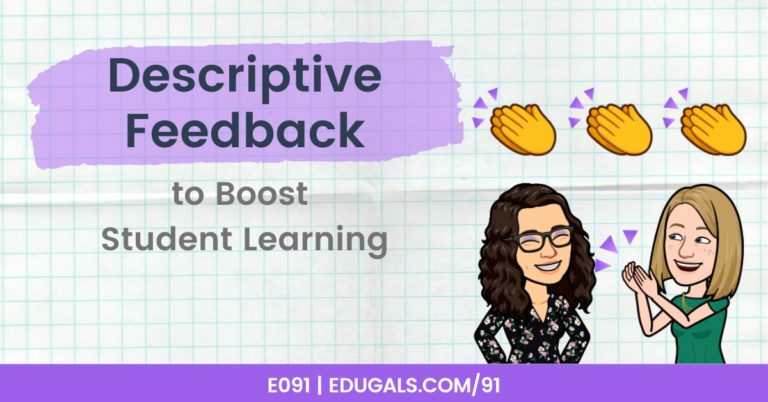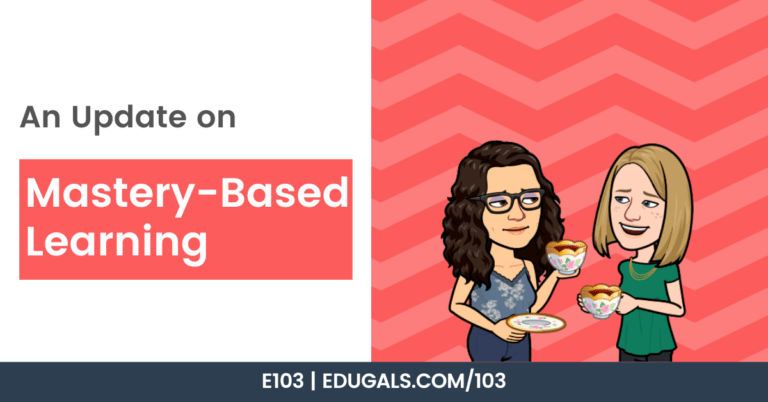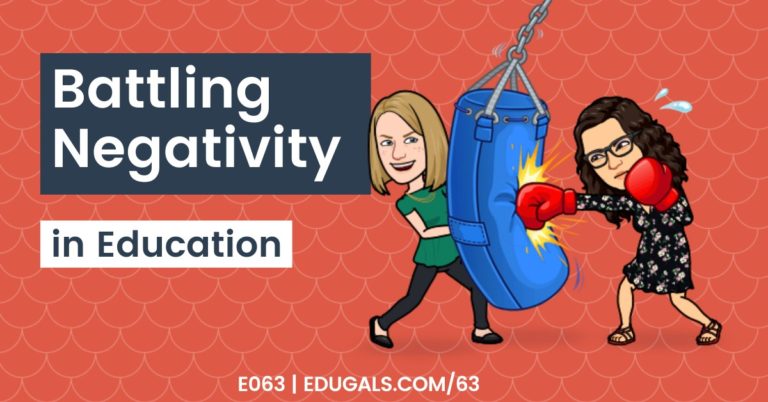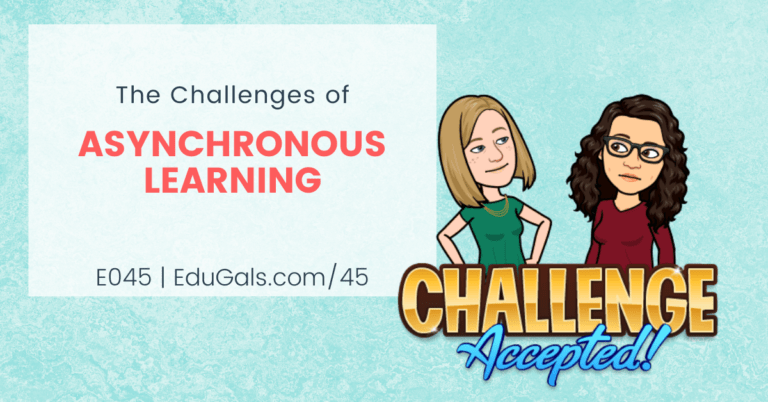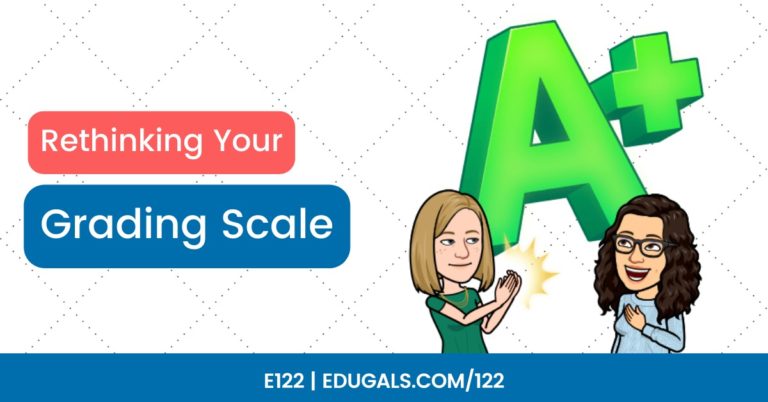[podcast_subscribe id=”7428″]
In this episode, we are exploring assessment and evaluation, and the idea of allowing students multiple opportunities to demonstrate their learning. We are going to talk about some of the resistance to this idea in education, as well as how we can approach the classroom in such a way to embrace the idea of failing and trying again.
If you like what you hear, then share this episode with a colleague or friend, and make sure you subscribe so that you don’t miss out on any new content! If you are able, consider supporting the show by buying us a coffee!
We would love to hear from you – leave a comment here, OR check out our FLIPGRID!

Show Notes
This week, we are talking about the learning process at school – the reality and the perception, and where things stand with respect to assessment and evaluation. It came up through a conversation about mastery-based classrooms, MCP (Modern Classrooms Project), and this idea of having students try something, and if they fail, giving them a chance to go back, learn the material and attempt an assessment again.
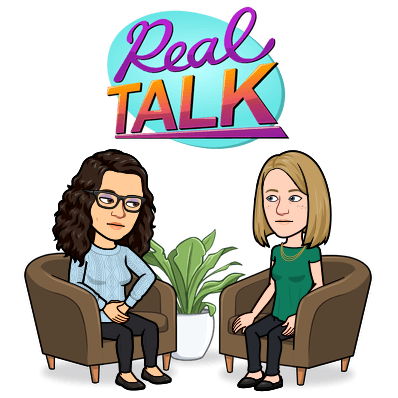
The idea here is that students may not get something the first time, and that’s okay! Instead, we should be building in more opportunities for students to be able to master concepts and move, eliminating this “one-and-done” approach to learning.
During our conversation, we have come to realize that this method seems so simple and logical, and yet the reality is so different – it seems much more difficult or complicated at the school level. It had us wondering why, and what is preventing teachers from considering this approach to assessment and evaluation.
The reality in schools really depends on the teachers, admin, etc. but it’s a mixed bag. Some educators would love to be able to embrace the strategy of allowing students multiple attempts to demonstrate their learning, whereas others disagree with that approach entirely.
There seems to exist a standard or culture that dictates that a student only gets one attempt at a test, lab, quiz, etc. to demonstrate learning. This isn’t new, and has likely been in practice for quite some time, but it doesn’t reflect real life.
If there’s anything that this pandemic has taught us, it’s that we need to do better once we know better. If a student completely misses a concept, then instead of just moving on, we should help that student to make sense of the concept or skill, and give them an opportunity to go back and practice, and then try again!
There’s also this perception that by giving students multiple opportunities to learn and demonstrate that learning, that it makes our courses less rigorous.
We need to put an end to that kind of thinking!
Our job is to educate, and to teach skills to our students. We need to get rid of this belief that some students will succeed, and some will fail, and that’s okay! If we have a chance to reach all of our students, and to teach them all the skills of our subject area(s), then we should embrace that! ALL students can succeed – this is what we need to believe, and what we need to remember as we develop our teaching materials, and our assessments.
In the real world, if we make mistakes in our jobs, or in our personal lives, we have opportunities to fix those mistakes, and to learn from them so that we don’t make those same mistakes again. We can relearn how to use a program, or relearn a skill that perhaps we didn’t pick up very well, and then try again.
So why don’t we give our students the same opportunity?
There’s a massive disconnect between schools and reality.
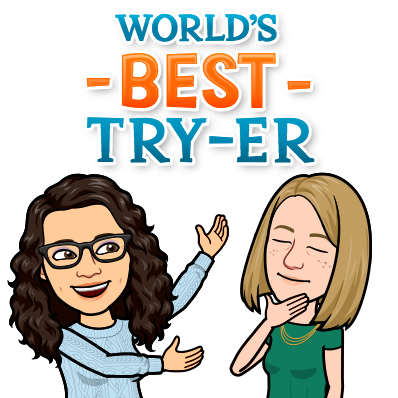
Even in teacher’s college, when we were learning how to plan lessons, units, etc. we were given feedback that we would then take and redo or fix our lessons to reflect that new learning. If we didn’t understand how to teach something, our practicum teachers would take the time to explain a different teaching method, or strategy that we could try out. That learning process is what allows educators to be effective teachers in the classroom.
Now the big question is: how do we approach this in education? How do we create safe spaces for all educators to voice their opinions, whether they be in favour of single attempts or not? How do we start these conversations, and shift mindsets towards the reality that exists in the real world? How do we support teachers as they begin this process of rethinking assessment and evaluation?
Once we are able to recognize that course rigor isn’t the priority, I think it becomes more obvious that it’s all about reaching all of our students, and giving all students an opportunity to be successful. This in turn will have a positive effect on the whole school community.
In reality, we often get lost in the day-to-day aspects of teaching – creating and delivering lessons, marking, and this pressure to get through all of the curriculum. This pressure is what causes us to shift away from all students learning, because it is daunting to consider the time that may be needed to allow for multiple attempts.
We need to shift the focus from this pressure to cover all the curriculum expectations, towards the goal of teaching all of our students. Once we have done that, we believe that more educators will see that some students may need a bit more time, or a different approach to a lesson so that they can also experience success on an evaluation.
We recognize that this is not going to be an overnight fix. It has to start with conversations; this is how we reach more people, and how we can take small steps to change things and build in more opportunities for students.
This has been a tough year (or two!) for everyone in education – teachers, education workers, admin, students and parents. Everyone has experienced some form of stress and/or anxiety with the learning models, or even just living through a pandemic and the stress that comes with that. Our students, in particular, are really worried about covid, being in-person, their marks, school, etc.
It has really exacerbated the fact that the status quo that we have been relying on, even though it wasn’t really working well, is not working at all anymore. We need to change to reflect the fact that school is different now. It isn’t pre-covid, and we aren’t really sure that we will ever return to pre-covid learning in the same way.
Part of what wasn’t working (or was working for most, but not all students) was assessment and evaluation. Covid took that and really accentuated how inequitable and broken these traditional practices really are.
This situation has given us a chance to really look at what is and is not working in education. We need to take a hard look at these things, and make some meaningful changes to fix what wasn’t working well which, in this case, is assessment and evaluation.
As educators, we need to recognize that this school year is NOT “business as usual.” So, why are trying to hold onto practices that are “business as usual” practices?! We need to give ourselves permission to relax a little bit and focus more on the learning and learning processes versus our typical practices of assessment and evaluation.
From there, we need to hold onto our new learning that was a result of this pandemic, and we need to find ways to bring these new practices forward in our classrooms. Assessment and evaluation do not have to be a one-and-done process.
There are very few situations in the world where people only get a single opportunity or chance. For specialty exams, such as the LSAT, MCAT, etc. individuals are allowed to take these tests multiple times if they aren’t happy with their results.
There is this belief that, as educators, we need to prepare our students for university, therefore we need to do tests, quizzes, etc. in a specific way that will ensure they are ready for post-secondary. However, if students aren’t able to learn the material, isn’t that a problem that will prevent them as well?
It’s also important to note that not all students will go, or want to go to university. There are so many more options for young adults now, and so we need to shift away from this mindset that puts university as the default. There are amazing programs at all levels – college, university and trades programs. They all have value, and will lead to a successful and happy life.
In talking about this topic, Brad Johnson, an amazing educator on Twitter, comes to mind. If you don’t follow him yet, then you need to go and check out his Twitter profile. He has tweeted quite a few gems, such as the one below – great reminders for educators about what’s really important.
As we look toward fall 2021, remember
— ???????????????? ???????????????????????????? (@DrBradJohnson) June 22, 2021
“Relationships before Rigor, Grace before Grades,
Patience before Programs, Love before Lessons” pic.twitter.com/7Rs0CWPmmR
The silver lining in this pandemic is how it has helped us to shift our mindsets, and has allowed to recognize past practices that are perhaps not working so well, and how we can improve our teaching. We were already on this journey, or pathway, however the pandemic really accelerated the recognition and learning process.
It was because of the pandemic that we were able to learn about and embrace the Modern Classrooms Project, and their model of learning that supports this idea of multiple attempts, and encouraging mastery of skills.
How do we shift thinking around assessment and evaluation?
We have certainly identified the problem that exists, however the solution is a little tricky and unclear. Shifting mindsets away from traditional assessment and evaluation practices is not a simple thing to do.
Here are some of our ideas or strategies:
- Begin with conversations
- Talk about it often and openly with colleagues – this is where it begins!
- Have a clear idea of your WHY
- Take the time to take notes, and figure out your reason for learning/changing
- If your “why” is clear, then it’ll be easier to share effectively
- Don’t take things personally
- This one could be hard – but it’s important to remember that it’s not you! People will hold on tight to what they know.
- Assessment & Evaluation is one of the areas that isn’t micromanaged in education
- Reach out to those open to new ideas
- It’s impossible to win everyone over – reach out to innovators and early adopters first to help pave the way
- Diffusion of Innovation Adoption Curve – explains how ideas spread, and who adopts these ideas
- Give space for thinking and processing
- This is not an overnight process, embrace and encourage colleagues to take time to think about and process these suggested changes, and create a safe space for them to then ask you for more details as needed
- Answer questions
- New teaching methods can be scary and overwhelming, so be open to answering any questions that colleagues may have
- Consider developing an FAQ doc of some sort to track questions you have had, or that you have been asked, along with your answers and thoughts
- Lead by example
- It’s one thing to talk about it, but make sure you’re willing to do the work too!
- Show your excitement and passion – it’ll help others get excited too!
- Have a game plan/big picture
- Change isn’t easy, and it isn’t quick, so make sure you have a plan to make it happen
- Remember: Lots of people need proof that it will work
- Not everyone is comfortable implementing something that they don’t know will work
- Invite colleagues into your classroom to see new practices at work
Overall, changes in education are difficult, and take a long while to really happen. Assessment and evaluation is one area that needs change.
Our episode was inspired by this list that we found online, entitled “Ten Principles of Mastery-Based Learning” – the 8th principle is where assessment and evaluation, and this idea of multiple attempts to demonstrate learning was mentioned. After reading this list, and sharing our initial reactions, we decided to just hit record and continue this important conversation.
While there is no overnight solution, there are lots of ways to get started, and to continue learning. The Modern Classrooms Project is one of those. Another resource that is worth checking out as well as “Grading for Equity” by Joe Feldman.
Hopefully you found this episode helpful – we’d love to hear your opinions on assessment and evaluation, and the idea of multiple opportunities to demonstrate learning.
Feel free to leave a message or question on our Flipgrid, or leave a comment here on our website! We’d love to heard from you, and we can even start our own FAQ on this topic!
